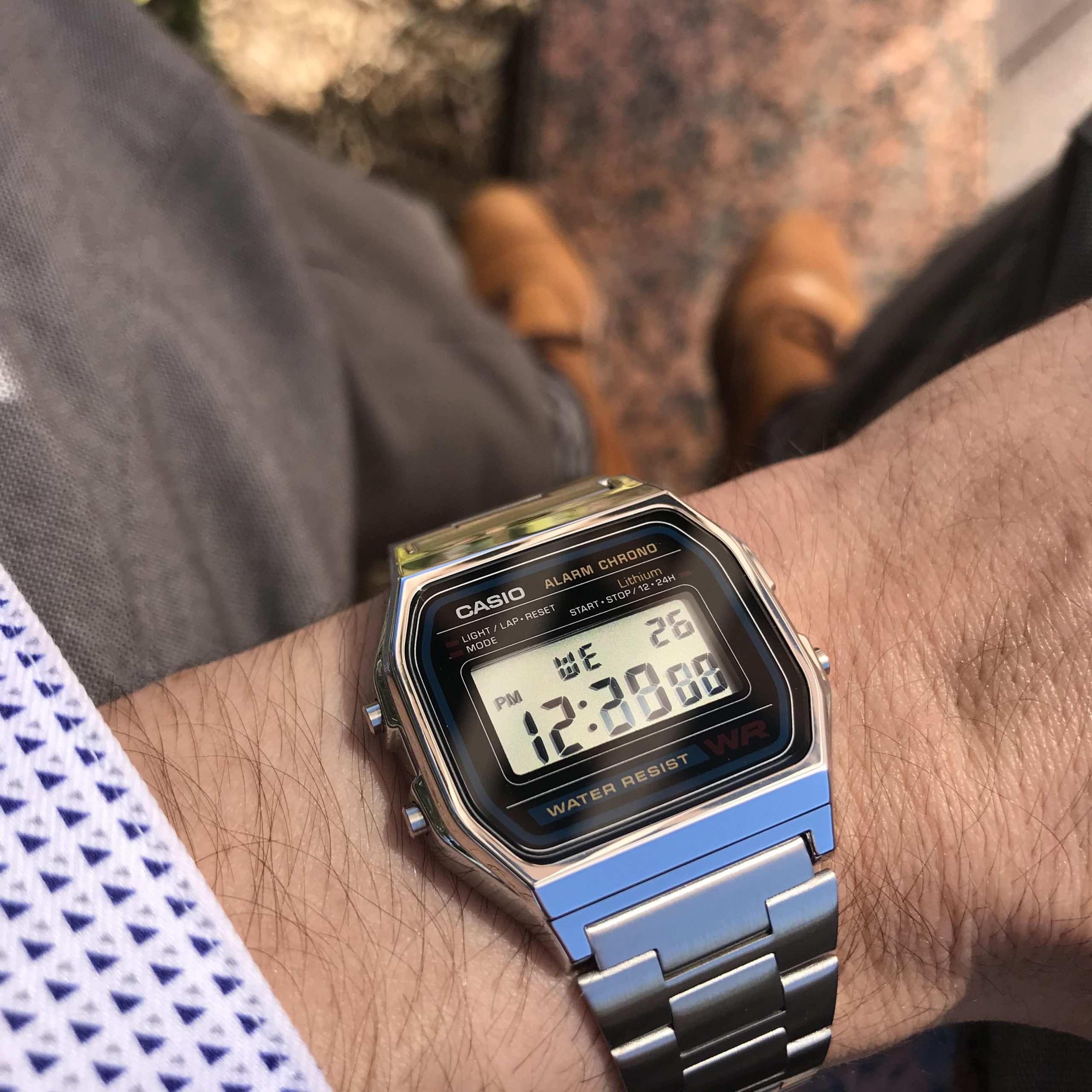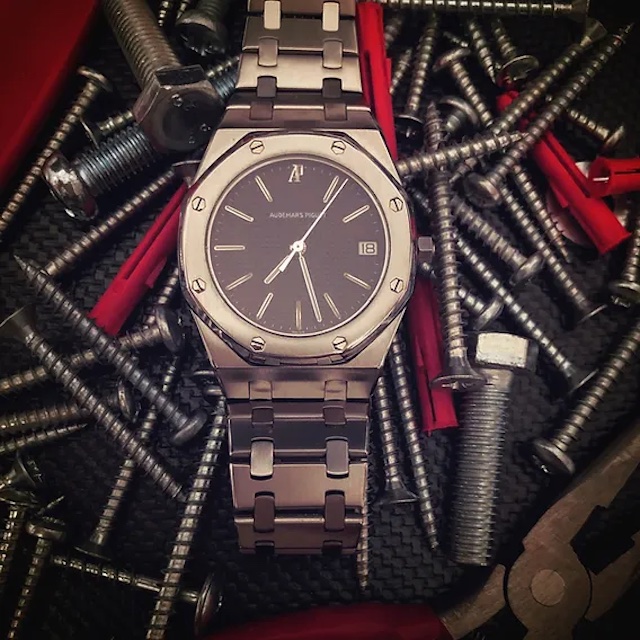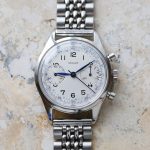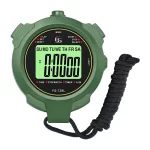Battery Life and Replacement Issues
Why did my watch stop working? One common reason why your watch may have stopped working is battery issues. Watches rely on batteries to function, and over time, they can deplete. It’s natural for batteries to lose charge. Poor battery life often means it’s time for a replacement. Here are key points to consider regarding watch batteries:
- Battery Lifespan: Watch batteries typically last between 1 to 4 years. The lifespan depends on the watch type and how often you use features that consume more power.
- Signs of Battery End: A slowing watch hand or digital displays dimming indicate a dying battery.
- Quality of Batteries: Opt for brand-name batteries. They tend to last longer and are more reliable than generic options.
- Professional Replacement: To ensure water resistance and avoid damage, let professionals replace the battery. They have the right tools and experience.
Remember to check the battery if your watch stops working. Often, it’s a simple fix that can bring your timepiece back to life. Ensure you replace the battery regularly and consider it as part of your watch maintenance routine.
Mechanical Watch Complications
When considering why your watch stopped working, it’s essential to examine mechanical complications. Mechanical watches have intricate systems, and several issues could arise from these complexities. Here’s what to look out for:
- Movement Lubrication: Over time, the lubricants in a mechanical watch can dry out. This can cause friction among parts, leading to wear and tear.
- Gearing Problems: The gears are the heart of a mechanical watch. Dirt or grime buildup can hinder their movement.
- Spring Issues: The mainspring may become over-wound or lose its tension, affecting timekeeping.
- Regular Servicing: Like any precision instrument, a mechanical watch needs regular maintenance. Lack of servicing can lead to significant complications.
If you face mechanical watch complications, professional watchmakers can diagnose and repair the issues. Do not attempt to open the watch yourself, as the delicate components necessitate expert handling.
Quartz Watch Malfunctions
Quartz watches are popular for their accuracy and reliability. However, they can stop working too. Here are common issues you might encounter with quartz watches:
- Battery Failure: Even quartz watches need battery changes. A dead battery is a frequent cause.
- Circuitry Issues: Inside a quartz watch is a complex circuit. If this fails, the watch may stop.
- Coil Damage: The tiny coil in quartz watches can break. This halts the ticking.
- Crystal Oscillator Problems: The oscillator keeps time. If it’s faulty, timekeeping suffers.
To fix quartz malfunctions, you should visit a professional. They can pinpoint the exact problem. They use specific tools and knowledge to repair your watch. Prevent issues by getting your quartz watch checked regularly. Battery replacements, every few years, help avoid sudden stops.
Exposure to Water and Moisture
Exposure to water and moisture is another key reason watches stop working. Even water-resistant models have limits. Check for these points:
- Seals and Gaskets: Over time, the waterproof seals may wear down or deteriorate. This allows moisture to enter.
- Condensation: If you notice fog under the crystal, it’s a sign of moisture inside your watch.
- Water Resistance Ratings: Understand your watch’s rating. Don’t exceed the recommended depth or duration of exposure to water.
- Immediate Action: Dry your watch immediately if it gets wet. Seek professional help to check for internal moisture.
Keep your watches away from water unless they are rated for higher water exposure. Regular checks for seal integrity can prevent moisture-related stoppages. Remember, prevention is always better than repair.
Magnetic Interference
Magnetic fields can disrupt your watch’s accuracy. This interruption is often why a watch stops working. Here is how magnetic interference affects different types of watches:
- Mechanical Watches: In mechanical watches, magnetic fields can magnetize the metal components. This can cause the gears to stick together and malfunction.
- Quartz Watches: For quartz watches, strong magnets can interfere with the electric pulse, leading to incorrect timekeeping.
To avoid magnetic interference, keep your watch away from strong magnetic sources. These include speakers, refrigerators, and magnetic clasps on bags. If you suspect magnetic interference:
- Identify the Source: Determine if you’ve been near magnets.
- Demagnetize the Watch: A watchmaker can use a demagnetizing tool to fix the issue.
Remember, watches are sensitive to magnets. Take care to prevent exposure to keep your timepiece accurate.
Physical Damage from Drops or Impacts
Watches are durable, but not immune to physical damage. Dropping your timepiece or knocking it against a hard object can stop it from working. Here are some issues to consider when your watch faces physical damage:
- Cracked Crystals: The watch face, or crystal, can crack from impact. This interrupts the watch movement.
- Dislodged Hands: A strong hit might knock the hands loose, causing them to stick or stop.
- Damaged Case: If the exterior casing bends or dents, it might press on the movement inside.
- Misaligned Components: Internal parts can shift out of place, disrupting the watch’s function.
If you think your watch stopped working due to physical damage, professional repair is your best option. They have tools and expertise to open the watch without causing further damage and can replace or realign parts safely.
Avoid drops and impacts to prevent these issues. Use a watch case when not wearing your watch and be mindful of your activities when you do. Quick action can save your watch from long-term damage, so seek help if an accident happens.
Factory Defects and Wear Over Time
Despite quality control efforts, some watches come with factory defects that affect their performance. These defects may not emerge right away. Here are factors to consider:
- Undetected Issues: Small parts might have defects unseen during manufacturing.
- Wear and Tear: All watches experience wear over time. Gears and other parts can degrade.
- Component Lifespan: Each piece in a watch has a life expectancy. Once exceeded, malfunctions may occur.
If you’re dealing with a factory defect, the warranty may cover repairs or replacements. Always keep your warranty information handy in case issues arise. Additionally, normal wear is unavoidable but can be managed:
- Regular Inspections: Have experts inspect your watch to catch early signs of wear.
- Timely Repairs: Fixing small problems quickly prevents more severe issues later.
Watches are intricate devices. Over time, even the best will show signs of age. However, understanding why your watch stopped working, due to factory defects or wear, helps you decide the next steps. Always address problems early, and ensure long-term enjoyment of your timepiece.
Proper Watch Maintenance and Care
Proper maintenance extends a watch’s life and ensures good performance. Regular care is vital, whether you own a mechanical, quartz, or digital timepiece. Below are key maintenance tips to keep in mind:
- Regular Cleaning: Gently wipe your watch with a soft cloth. This prevents dust and grime build-up.
- Watch Storage: Store your watch in a cool, dry place. Use a padded box to protect it from physical damage.
- Avoid Extremes: Keep your watch away from extreme temperatures and magnetic fields that may harm its functionality.
- Water Resistance Check: For water-resistant models, have the seals checked annually to maintain integrity.
- Servicing Schedule: Follow the manufacturer’s recommended service intervals. Professional servicing can spot issues early on.
When it comes to ‘why did my watch stop working,’ remember that prevention through proper care is always preferable to repair. Treat your watch well, and it will serve you faithfully for years to come.





